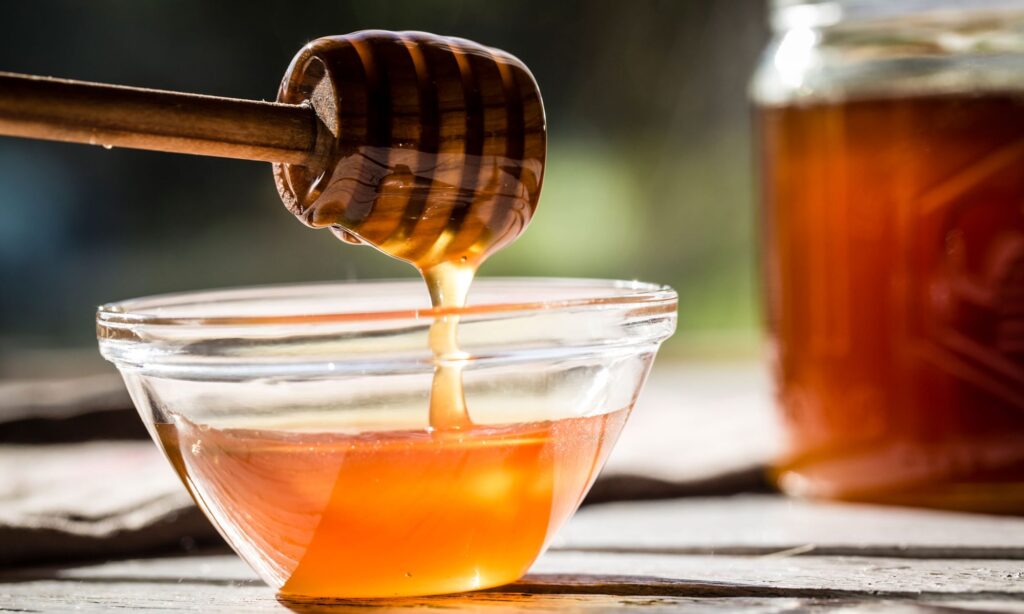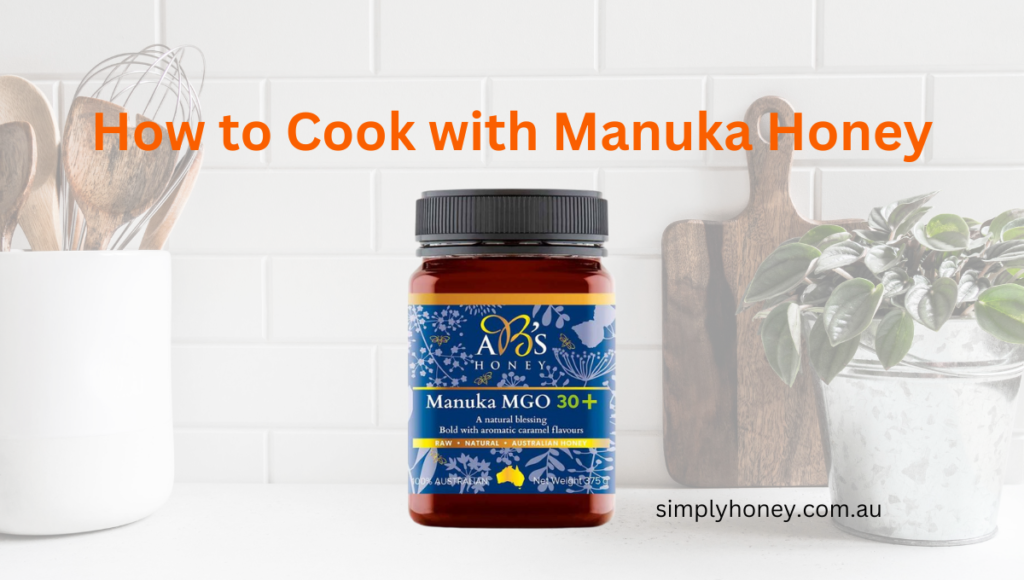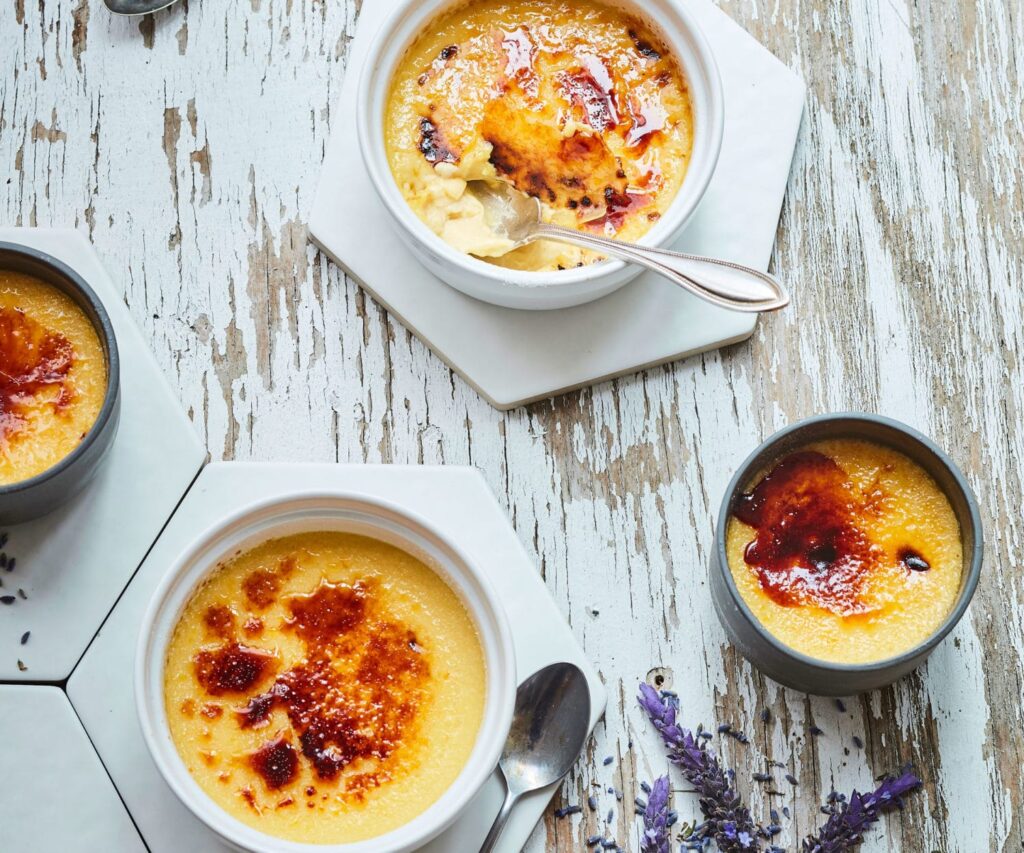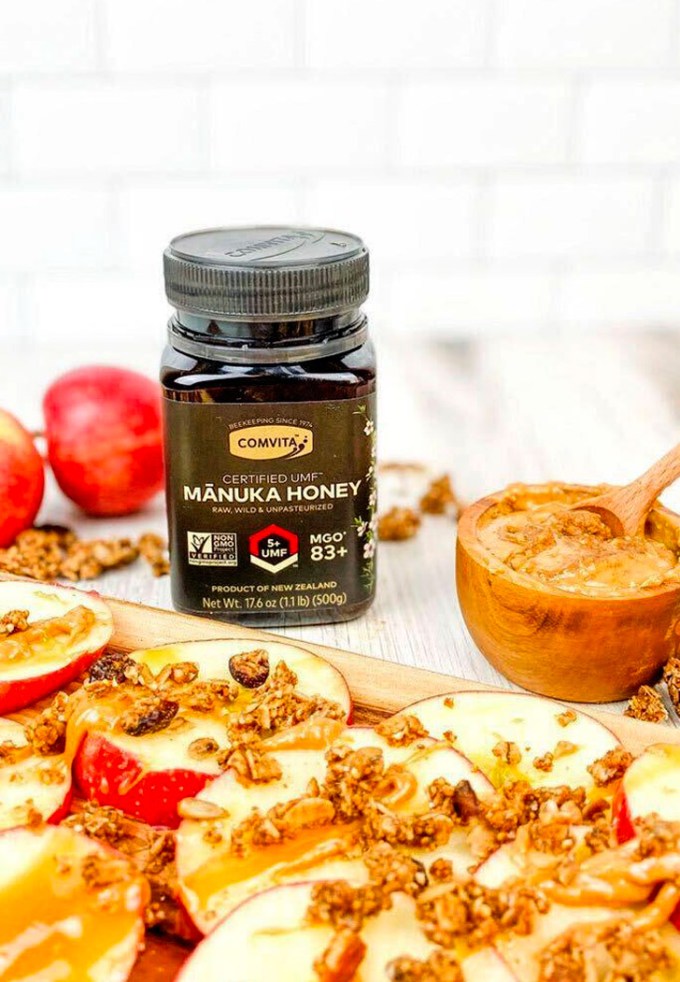
Are you a culinary enthusiast looking to add a hint of natural sweetness to your dishes? Look no further than the golden elixir known as Manuka honey. Renowned for its unique flavor and numerous health benefits, Manuka honey is increasingly finding its place in kitchens worldwide. But can you really cook with this exquisite ingredient? In this article, we explore the versatility of Manuka honey as a cooking ingredient, uncovering the delightful range of culinary creations you can achieve with this liquid gold. From glazes and dressings to desserts and marinades, let your taste buds be tantalized as we unlock the secrets of cooking with Manuka honey.
Manuka Honey in Cooking
Benefits of Cooking with Manuka Honey
Manuka honey is not only a delicious natural sweetener, but it also offers a range of health benefits. Incorporating manuka honey into your cooking can enhance the flavor of your dishes and provide added nutritional value. This unique honey is known for its antibacterial properties, making it a great ingredient to use in recipes for boosting immunity and promoting overall well-being. Additionally, manuka honey can soothe sore throats, aid digestion, improve skin health, and even lower cholesterol levels. With its versatile nature and numerous health benefits, cooking with manuka honey is a great way to elevate your culinary creations while taking care of your health.
Types of Manuka Honey
UMF Rating System
When considering which type of manuka honey to use in your cooking, it’s important to understand the UMF (Unique Manuka Factor) rating system. The UMF rating assesses the purity and quality of manuka honey, with higher ratings indicating a higher concentration of beneficial compounds. Look for a UMF rating of 10 or higher for the best quality honey that offers the most health benefits.
Methylglyoxal (MGO) Content
Another factor to consider when choosing manuka honey for cooking is its Methylglyoxal (MGO) content. Methylglyoxal is a compound found in high levels in authentic manuka honey, and it is responsible for its unique antibacterial properties. The higher the MGO content, the stronger the antibacterial properties of the honey. Look for a higher MGO content if you’re specifically looking to benefit from manuka honey’s antibacterial effects.
Raw Manuka Honey
Raw manuka honey is unprocessed and unfiltered, meaning it retains all of its natural enzymes, vitamins, and minerals. When using raw manuka honey in your cooking, you can be confident that you’re getting the full range of health benefits it has to offer.
Processed Manuka Honey
Processed manuka honey undergoes some level of filtration and heat treatment, which can affect its nutritional profile and potentially reduce the potency of its beneficial compounds. While it may still have some health benefits, opting for raw manuka honey is generally recommended for cooking to ensure maximum nutritional value.

Choosing the Right Manuka Honey for Cooking
Consider the UMF Rating
When selecting manuka honey for your cooking needs, consider the UMF rating. A higher UMF rating indicates a higher concentration of beneficial compounds, making it a more potent choice in terms of both flavor and health benefits. Aim for a UMF rating of 10 or higher for optimal results.
Check the MGO Content
In addition to the UMF rating, checking the Methylglyoxal (MGO) content can provide valuable information about the honey’s potency. The MGO content reflects the antibacterial properties of the honey, so a higher MGO content will contribute to its overall health benefits. Look for a higher MGO content if you’re seeking manuka honey specifically for its antibacterial effects.
Look for Raw or Processed Honey
Deciding between raw or processed manuka honey depends on personal preference and the desired level of nutritional value. Raw manuka honey retains all of its natural enzymes and nutrients, providing a more wholesome option. On the other hand, processed manuka honey may have undergone some filtration and heat treatment, potentially affecting its nutritional profile. Both types can be used in cooking, but if you prioritize maximum nutritional value, opt for raw manuka honey.
Consider the Flavor Profile
Manuka honey has a unique flavor profile that adds depth and sweetness to dishes. The taste can vary depending on factors such as the region and flowering plants visited by the bees. Some manuka honey has a strong, intense flavor, while others have a milder taste. Consider the flavor profile when choosing manuka honey for your cooking to ensure it complements your recipes.
Cooking Techniques
Baking with Manuka Honey
Baking with manuka honey adds a rich, caramel-like flavor to cakes, bread, cookies, and other baked treats. Its natural sweetness enhances the taste of these desserts, giving them a unique and wholesome twist. When substituting manuka honey for granulated sugar in baking recipes, remember that honey has a higher moisture content, so you may need to adjust the other liquid ingredients accordingly.
Marinating and Glazing
Manuka honey makes a fantastic addition to marinades and glazes, adding a touch of sweetness and depth to savory dishes. Its antibacterial properties can also help to tenderize meat and enhance the flavors of the other ingredients in your marinades. Whether you’re grilling chicken, beef, or even vegetables, incorporating manuka honey into your marinades and glazes can take your dishes to a whole new level.
Incorporating Manuka Honey in Sauces
Manuka honey can be used as a natural sweetener in sauces, adding a depth of flavor and complexity to your creations. From barbecue sauces and salad dressings to stir-fry sauces and vinaigrettes, incorporating manuka honey can elevate the taste of your dishes while providing a range of health benefits.
Using Manuka Honey in Beverages
Manuka honey can be a delightful addition to a variety of beverages, adding natural sweetness and unique flavor profiles. Stir it into your tea or coffee for a touch of sweetness, blend it into smoothies for added nutrition and flavor, or incorporate it into homemade lemonade for a refreshing summer drink. The options are endless, and the health benefits of Manuka honey will make your beverages even more enjoyable.
Stir-Fry and Sauté with Manuka Honey
Incorporating manuka honey into stir-fries and sautéed dishes can add complexity and balance to the flavors. Its natural sweetness helps to caramelize the ingredients and create a beautiful glaze. Whether you’re cooking vegetables, shrimp, or chicken, adding a drizzle of manuka honey can take your stir-fry or sauté to the next level.

Recipes Featuring Manuka Honey
Manuka Honey Glazed Salmon
Ingredients:
- 4 salmon fillets
- 2 tablespoons manuka honey
- 2 tablespoons soy sauce
- 1 tablespoon lemon juice
- 1 garlic clove, minced
- Salt and pepper to taste
Instructions:
- Preheat the oven to 400°F (200°C).
- In a small bowl, whisk together the manuka honey, soy sauce, lemon juice, minced garlic, salt, and pepper.
- Place the salmon fillets on a baking sheet lined with parchment paper.
- Brush the honey glaze mixture generously over the salmon fillets.
- Bake for 12-15 minutes or until the salmon is cooked through and the glaze has caramelized.
- Serve the salmon with your favorite side dishes and enjoy the delicious combination of flavors.
Manuka Honey Yogurt Parfait
Ingredients:
- 1 cup Greek yogurt
- 2 tablespoons manuka honey
- 1/2 cup granola
- 1/2 cup mixed berries (strawberries, blueberries, raspberries)
- Fresh mint leaves for garnish
Instructions:
- In a small bowl, mix the Greek yogurt and manuka honey until well combined.
- In serving glasses or bowls, layer the yogurt mixture, granola, and mixed berries.
- Repeat the layers until the glasses or bowls are filled, ending with a dollop of yogurt on top.
- Garnish with fresh mint leaves.
- Serve immediately and savor the creamy texture, sweetness, and crunch of this delightful parfait.
Manuka Honey Lemonade
Ingredients:
- 4 cups water
- 1/2 cup freshly squeezed lemon juice
- 1/4 cup manuka honey
- Ice cubes
- Lemon slices for garnish
Instructions:
- In a pitcher, combine the water, lemon juice, and manuka honey.
- Stir well until the honey is dissolved.
- Add ice cubes to glasses, then pour the lemonade over the ice.
- Garnish the glasses with lemon slices.
- Serve chilled and enjoy the refreshing combination of tangy lemons and sweet manuka honey.
Manuka Honey Marinade for Chicken
Ingredients:
- 4 boneless, skinless chicken breasts
- 3 tablespoons manuka honey
- 2 tablespoons soy sauce
- 1 tablespoon Dijon mustard
- 1 tablespoon olive oil
- 2 garlic cloves, minced
- Freshly ground black pepper
Instructions:
- In a small bowl, whisk together the manuka honey, soy sauce, Dijon mustard, olive oil, minced garlic, and black pepper.
- Place the chicken breasts in a shallow dish and pour the marinade over them.
- Make sure the chicken is evenly coated with the marinade.
- Cover the dish and refrigerate for at least 30 minutes or up to 24 hours.
- Preheat the grill or grill pan to medium-high heat.
- Grill the chicken for 6-8 minutes per side or until cooked through.
- Serve the chicken with your favorite side dishes and enjoy the flavorful, tender meat.
Manuka Honey Roasted Vegetables
Ingredients:
- Assorted vegetables of your choice (carrots, sweet potatoes, Brussels sprouts, bell peppers, etc.), cut into bite-sized pieces
- 2 tablespoons olive oil
- 2 tablespoons manuka honey
- Salt and pepper to taste
- Fresh herbs for garnish (thyme, rosemary, etc.)
Instructions:
- Preheat the oven to 425°F (220°C).
- In a large bowl, toss the vegetables with olive oil, manuka honey, salt, and pepper until well coated.
- Spread the vegetables out in a single layer on a baking sheet.
- Roast for 25-30 minutes or until the vegetables are tender and caramelized, stirring once or twice during cooking.
- Remove from the oven and garnish with fresh herbs.
- Serve as a flavorful side dish or as a vegetarian main course.
Substituting Manuka Honey in Recipes
Understanding the Sweetness
Manuka honey is sweeter than regular honey and has a unique flavor profile. When substituting manuka honey for other sweeteners in recipes, keep in mind that its sweetness may be more intense. It’s always best to start with a smaller amount and adjust to taste.
Adjusting the Amount
Due to its higher moisture content, manuka honey can affect the consistency and moisture level of your dishes. When substituting manuka honey for granulated sugar, you may need to reduce the amount of other liquids in the recipe to maintain the desired consistency. It’s a good idea to experiment and make adjustments based on the specific recipe you’re using.

Storing Manuka Honey
Proper Storage to Maintain Quality
To maintain the quality and freshness of manuka honey, it’s important to store it properly. Keep the honey in a cool, dry place away from direct sunlight and heat sources. It’s best to store it in a sealed container to prevent any moisture or contaminants from entering. If stored correctly, manuka honey can last for an extended period without losing its flavor and health benefits.
Adding Manuka Honey to Your Daily Diet
Incorporating Manuka Honey in Breakfast
Adding manuka honey to your breakfast can provide a nutritious and flavorful start to your day. Spread it on toast, drizzle it over pancakes or waffles, or mix it into your oatmeal or yogurt for a natural sweetener with added health benefits. The natural antibacterial properties of manuka honey can also help support your immune system, making it an excellent addition to your morning routine.
Using Manuka Honey in Salad Dressings
Create a delicious and nutritious salad dressing by combining manuka honey with olive oil, vinegar, and your favorite herbs and spices. The sweetness of the honey balances out the acidity of the vinegar, resulting in a well-rounded dressing. Experiment with different flavor combinations to find your perfect dressing to elevate your salads to a whole new level.
Enjoying Manuka Honey as a Snack
Manuka honey makes for a delightful and wholesome snack on its own or paired with fruits, nuts, or cheese. Spread it on crackers or apple slices, drizzle it over a cheese plate, or simply enjoy a spoonful for a natural energy boost. The versatility of manuka honey makes it a convenient and delicious snack option for any time of the day.

Potential Health Benefits of Manuka Honey in Cooking
Boosting Immunity
Manuka honey has natural antibacterial properties and is known to support the immune system. When used in cooking, it can help strengthen your body’s defenses against harmful bacteria and viruses. Incorporating manuka honey into your recipes can contribute to overall immune health and help prevent illnesses.
Soothing Sore Throats
Manuka honey has been used for centuries as a natural remedy for sore throats. Its antibacterial properties help soothe inflammation and relieve discomfort. Using manuka honey in warm beverages or incorporating it into cough drops and throat lozenges can provide relief and support throat health.
Improving Digestion
Manuka honey has long been known for its ability to aid digestion. It contains enzymes that can help break down food and promote proper digestion. Consuming manuka honey in your cooking can contribute to healthier digestion and alleviate common digestive issues.
Enhancing Skin Health
Manuka honey is not only beneficial when consumed but also when applied topically. Its antimicrobial and anti-inflammatory properties make it an excellent ingredient for skincare products. As you cook with manuka honey, you can also use it to create homemade face masks, scrubs, and moisturizers to nourish and rejuvenate your skin.
Lowering Cholesterol
Research suggests that manuka honey may help lower cholesterol levels, particularly LDL (bad) cholesterol. The antioxidants present in manuka honey may contribute to reducing inflammation and improving heart health. Cooking with manuka honey as part of a balanced diet can potentially have positive effects on cholesterol levels.
Conclusion
Incorporating manuka honey into your cooking can add a delightful sweet flavor and unparalleled health benefits to your dishes. With its unique antibacterial properties, manuka honey is a versatile ingredient that can elevate your recipes and support your overall well-being. Whether you’re baking, marinating, glazing, or simply adding a spoonful to your morning routine, manuka honey offers a myriad of possibilities for enhancing both the taste and health value of your meals. Experiment with different recipes and techniques to fully enjoy the benefits of cooking with manuka honey in your daily life. So go ahead, grab a jar of this golden goodness and start exploring all the ways you can enhance your culinary creations and nurture your body.
